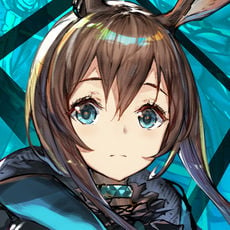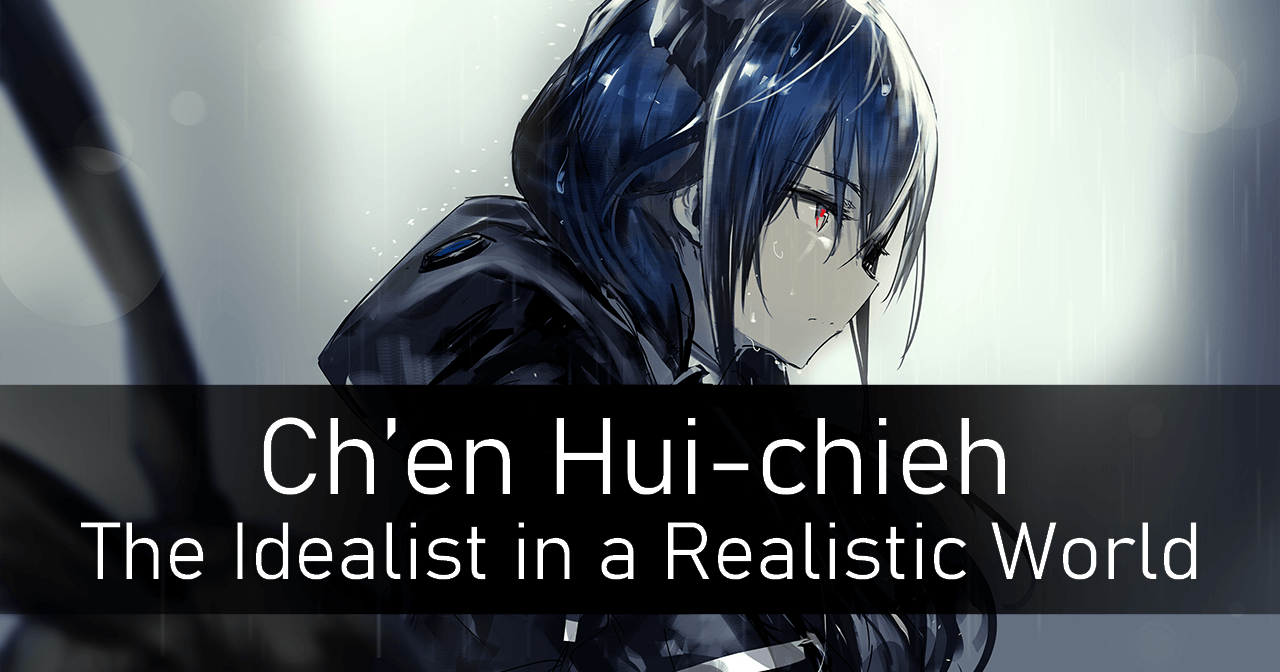So, has it changed? Can it be changed? Does everything I’ve worked for actually mean anything?"
Even if it can’t now, it must be someday.
You’re going to make sure it can be changed.
In a world where the divide between the Infected and uninfected has existed since "the emergence of law", people have mostly accepted that it's a canyon that cannot be crossed. Society built itself upon the blood of the Infected, its citizens conditioned to fear and reject the Infected as inferior beings who do not deserve to live alongside them. In one way or another, the Infected became "evil"—like one of the arguments for the definition of justice in Plato's Republic, "justice is nothing other than the advantage of the stronger."
But there are some who don't believe in this justice. Knowing full-well how arduous their goal is, they push forward regardless and fight for the future of the Infected.
People such as those of Rhodes Island.
People such as Ch'en.
This will be an analysis of Ch'en's actions in The Birth of Tragedy and the reasoning behind them (thus there will be spoilers for Chapter 7; I will also use some CGs from Chapter 8, but nothing that contains spoilers). As always, this only represents my own interpretation of the character mentioned within.
Let's begin.
The Root of Her Ideals
I do happen to know. All thanks to that niece of yours, of course. You two are both cut from the same cloth of stupidity.
—The Rat King, 7-19.
Although Ch'en left first impressions as a tough and uncompromising L.G.D. policewoman, she turned out to be quite a heroic person. Unlike how she initially seemed, she does in fact care about the Infected. It is revealed in Chapter 6 that she has been working with the Rat King Lin to reintegrate the slums into Lungmen and have the Infected become accepted by the populace, and when the purge sent years of her effort down the drain, she drew her sword against Wei then jumped out of the window.
The painfully short summarization of Ch'en's life story aside, we can see that her actions all seem to be driven by an ideal not unlike Rhodes Island's—a brighter future for the Infected. However, Rhodes Island has the manpower, resources, and influence to afford researching a cure; Ch'en did not have that. All she had to work with were the slums, so that was where she began.
If Lungmen is the realization of Wei Yenwu's ideals, then the slums are the realization of Ch'en's. It feels like a hopeless ideal, then, when years of effort are shattered in one day by a single order from Wei. The fear of the Infected is rekindled, the residents of the slums join forces with Reunion, and all seems lost.
Whether this ideal can be achieved or not isn't the focus here. We want to know "why".
And ironically, the person who planted those ideals was no other than Wei himself.
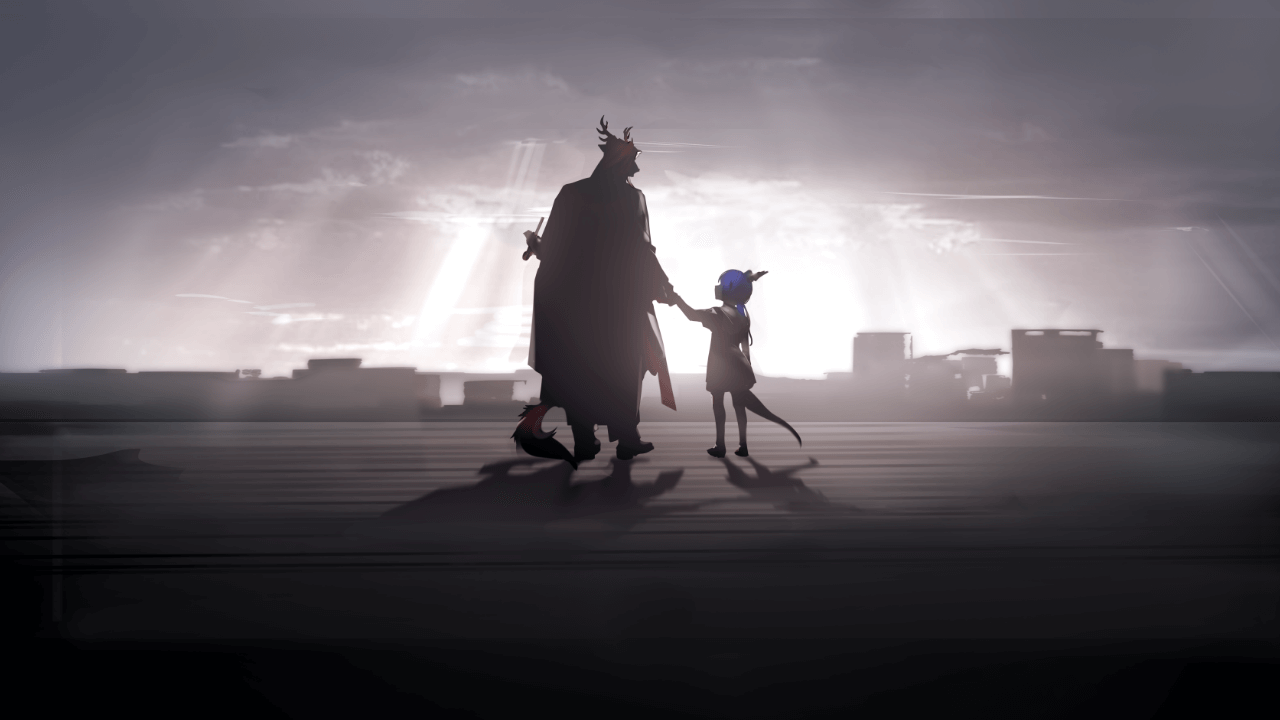
There are people who simply want to rest and find refuge within a city. Why should they suffer needless death?
Don’t we just want to give them a home? Don’t we want all people like us, who have nowhere to go, to have a warm place to rest?
Did I not simply want to build a little city where everyone can live with peace of mind?
Who was Lungmen built for, the way it is now?
—Wei Yenwu, 7-7.
Time and time again we have seen the Infected demonized, discriminated against, and looked down upon. The Lungmen slums are no exception. However, while it is never stated outright if the Infected are included in Wei's vision of "a little city", we do know that he allowed Ch'en and the Rat King to work on the slums, He wishes for Ch'en to take over Lungmen after him, willing to go as far as to sacrifice himself to ensure her and Lungmen's survival. If Wei were antagonistic towards the Infected, he would not have told Ch'en to "make sure it can be changed" when he knows full well what her attitude towards the Infected is.
As the Rat King said, both Wei and Ch'en are of the same nature. As for the stupidity part, well... let's just say that saying "I will have the Infected become accepted" in a world with a history like Terra's is like saying "I will achieve world peace" on Earth.
What separates Wei and Ch'en, then, is that Wei's idealism is already in the past tense. I do not doubt that there was a point where Wei cared about the Infected as much as Ch'en does now. But Wei is not just an idealist; he's a politician first and foremost. His ideal includes not just the slums, but the entirety of Lungmen. Thus, when Kashchey forced Wei's hand to kill Talulah's father, then held Talulah hostage and made Wei weigh the life of his niece and the lives of the Lungmenites, he also shattered Wei's will.
If he was willing to sacrifice even Talulah for his vision of Lungmen, what else won't Wei do?
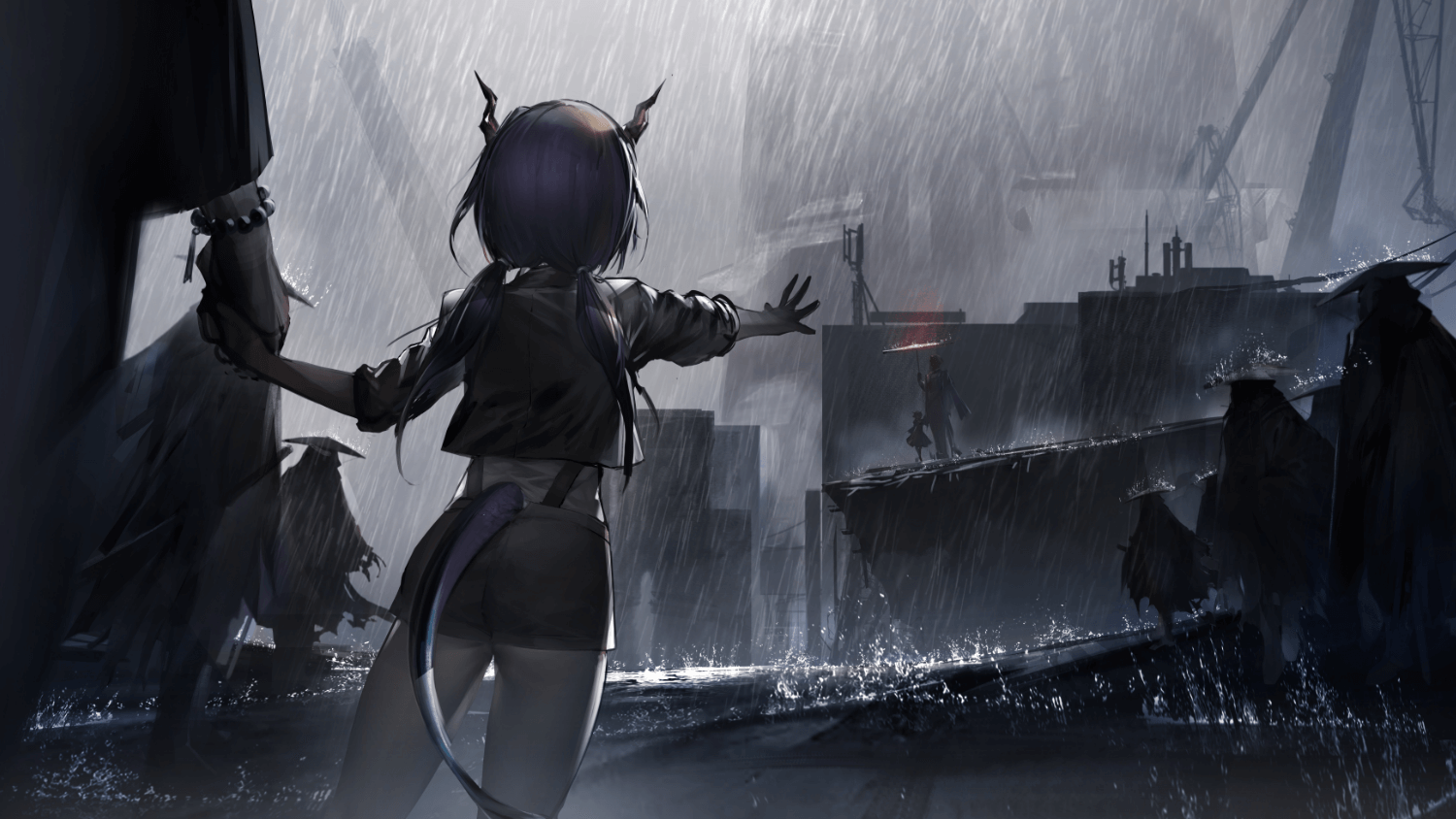
We may never know what else Wei had to sacrifice to maintain his vision, but Kashchey was right about one thing: he was afraid. Lungmen meant way, way, way too much for Wei. Like Patriot, who nevertheless remains in Reunion after witnessing Talulah's methods, Wei also believes that he's far too deep to stop: "I have struggled against the men behind me and the city below me for so long, and this is all I have to show for it. Would Lungmen allow me to stop?" Throughout the twenty years of his rule, his heart became cold. So cold that he has to ask himself in the end, "When did Lungmen turn into this? And... when did I become like this?"
Morality is subjective. To Wei, the purge was something he had to do. To the Yen Censors, to the Lungmen citizens who fear the Infected, it was something that should be done. To Ch'en, it was unacceptable.
I had thought that by defeating Reunion, by reuniting all the people of Lungmen, we would eventually get through this. We could even bridge the misunderstandings between Lungmenites....
I never imagined... but I should have.
Once again you reassert yourself as the master of Lungmen. As you always were.
But still.... How...? How could you do such a thing?
—Ch'en, 6-18.
Ch'en isn't Wei. To be precise, Ch'en is more akin to the Wei from over twenty years ago, when there was no Kashchey and no threat of war, when his ideals have not been bogged down by reality. Even with all she said about hating Lungmen, Hoshiguma asks , "How many people care about this city as much as you do?" While Wei cares about Lungmen, Ch'en cares about the people of Lungmen. When Wei built a city where the Infected can survive, Ch'en wants it to be a city where the Infected can live alongside the uninfected as equals. Because her ideals have not yet been broken, because she is still righteous, she'll never agree to Wei's methods of "sacrificing the few for the many", especially when it involves the Infected.
As for Wei, he saw a shadow of his past in Ch'en's determination. As much as he wants to believe that he has escaped the nightmare that is Kashchey, the arrival of Talulah made him realize that the same tragedy from twenty years ago will reenact itself. Only this time, it will be Kashchey's successor against his own.
He is afraid of Kashchey. That has never changed.
A Hero of Justice
When ideals clash, people turn against each other.
And so, we arrive at this scene.
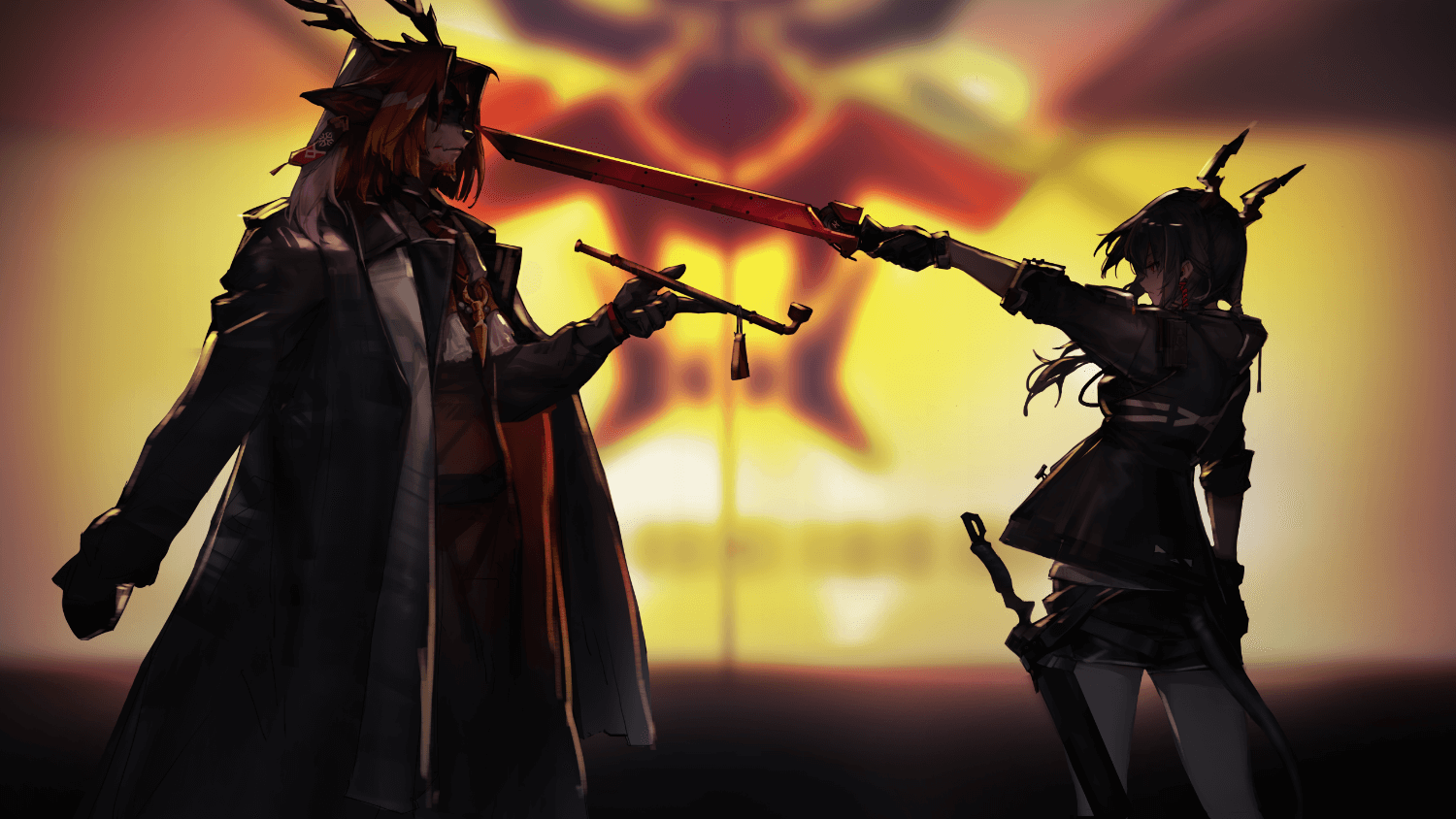
Everything I worked for came to nothing as soon as you did what you did.
Lungmen is about to go up in flames. A battle is upon us. You have your ways, I have mine.
The only difference is, I’m not like you. I don’t think anyone is a “mistake.”
—Ch'en, 7-2 End.
The cause of the conflict between them, of course, is the slums purge. However, I will say that Ch'en's view of the Infected is still too naive. She thought that since she treats the Infected as she would treat anyone else, she would be treated the same way by the Infected. Thus, when Wei told her that the Infected "rejected" Lungmen, she refused to believe it.
Hoshi saw it through: "They didn’t love Lungmen. They simply had nowhere else to go."
Confucius once said that it is easier to hate others than it is to love others. Your mileage may vary on this statement, but when Oripathy is involved, it is much simpler to push the Infected away from you than to try and care for them. Likewise, it is simpler to hate the ones who treated you like trash than to try and understand them.
I don't think anyone would willingly live in the slums if they had a better choice. The truth is, the Infected's fate is to either end up on the Ursus tundra, or to wither away in the Lungmen slums.
But while Ch'en may be idealistic and naive, she isn't stupid. When there's a massive core city ramming towards Lungmen, she still knows what she should do. So, even though Ch'en's window-jumping may seem rash and illogical to some, I believe it can be explained through two major aspects of Ch'en's character.
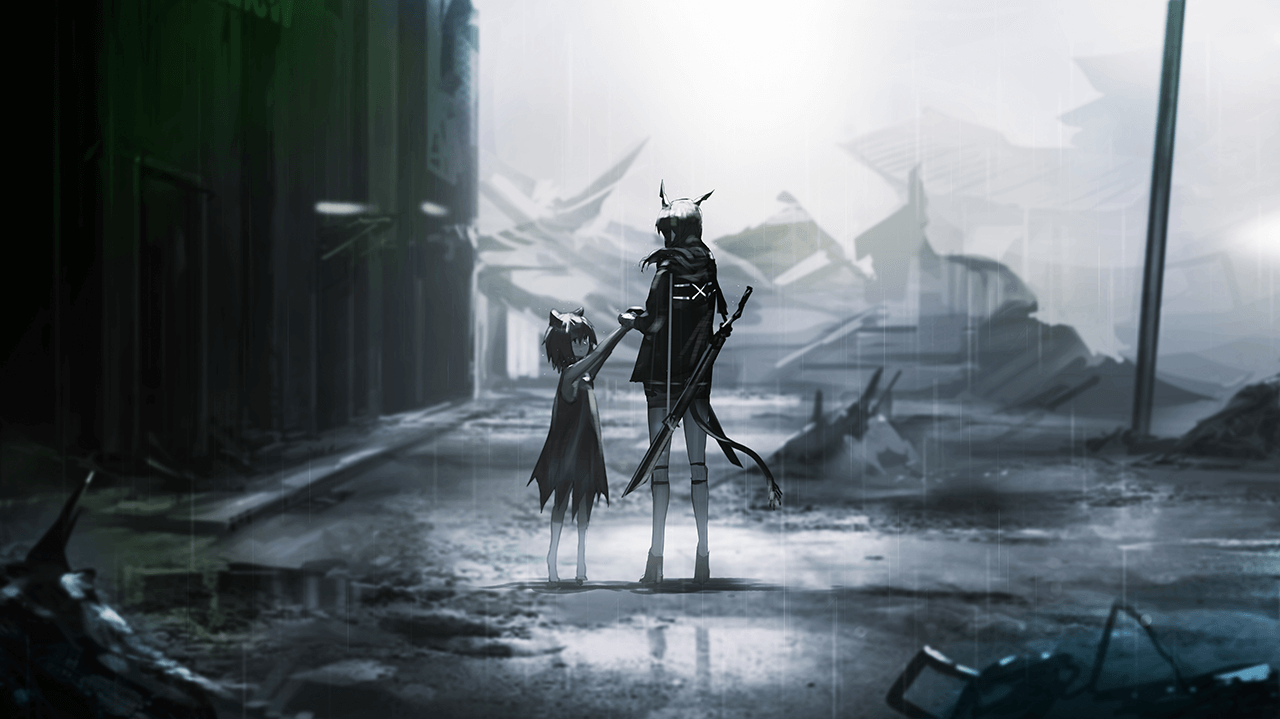
The first aspect is her identity as an "Infected". We have suspected her of being infected since Chapter 5, when Mephisto's powder worked on Ch'en, and she confirms it herself in Chapter 7. We also learn that Wei is the one who covered it up, and wished for no one to know.
Perhaps there is a degree of self-preservation in Wei's decision. He has to juggle Lungmen's relationship between Yen and Ursus, and having Ch'en be publicly known as an Infected will do no good. On the other hand, it will directly jeopardize his efforts of making Ch'en the next ruler of Lungmen. If either Wei or Ch'en is removed due to her being an Infected, I find it unlikely that the next person to be placed in charge would have the same attitude towards the Infected and the slums.
But is this what Ch'en wanted?
Hoshi tells her that she doesn't care if Ch'en is infected, that Swire, Nine, the L.G.D., and Wei all don't care that she's infected. Yet as I've stated previously, Ch'en's ideal Lungmen is one where everyone, regardless if they are infected or not, can be accepted. It didn't matter if her family and friends can accept the fact that she's infected if the city itself wouldn't.
Let's assume that Wei did successfully stop Ch'en, and goes to the Chernobog core city on his own. Let's then assume the best outcome he envisioned, and say that neither Yen nor Ursus presses this issue any further, and Lungmen is free for Ch'en to rule.
Now, will this outcome help the situation of the Infected in any way?
It will not.
The Infected will continue to be antagonized by the citizens, perhaps even worse than before after people witnessed the atrocities committed by Reunion. There will be no reason for the people to accept Ch'en's identity as an Infected.
Even if everything goes the way Wei wanted, it does nothing for Ch'en's ideal. So if she wants the slightest hope for the future of the Infected in Lungmen, to make the people realize that there are also Infected on their side, then the one to resolve this conflict shouldn't be Wei Yenwu, but Ch'en Hui-chieh. This is why she declares that she is Infected in front of Amiya and Kal'tsit—someone has to know and spread the word, and there is no better candidate for that than Rhodes Island. This is why even after Hoshi tells her that Wei is planning to die instead, Ch'en insists that his sacrifice will be meaningless. It won't be a be-all and end-all solution; it might not work at all, but if the other option may lead to Lungmen never accepting the Infected again, for Ch'en, a small chance is better than none.
Kal'tsit always says that "Only the Infected can face the Infected." As much as it can mean "know your foe", I believe it is also a message to the uninfected: "The Infected are not your enemies."
"But if this is what Ch'en wanted, why doesn't she go to the core city with Rhodes Island?" you may ask. Well, this leads to the second aspect of Ch'en's character: her family.
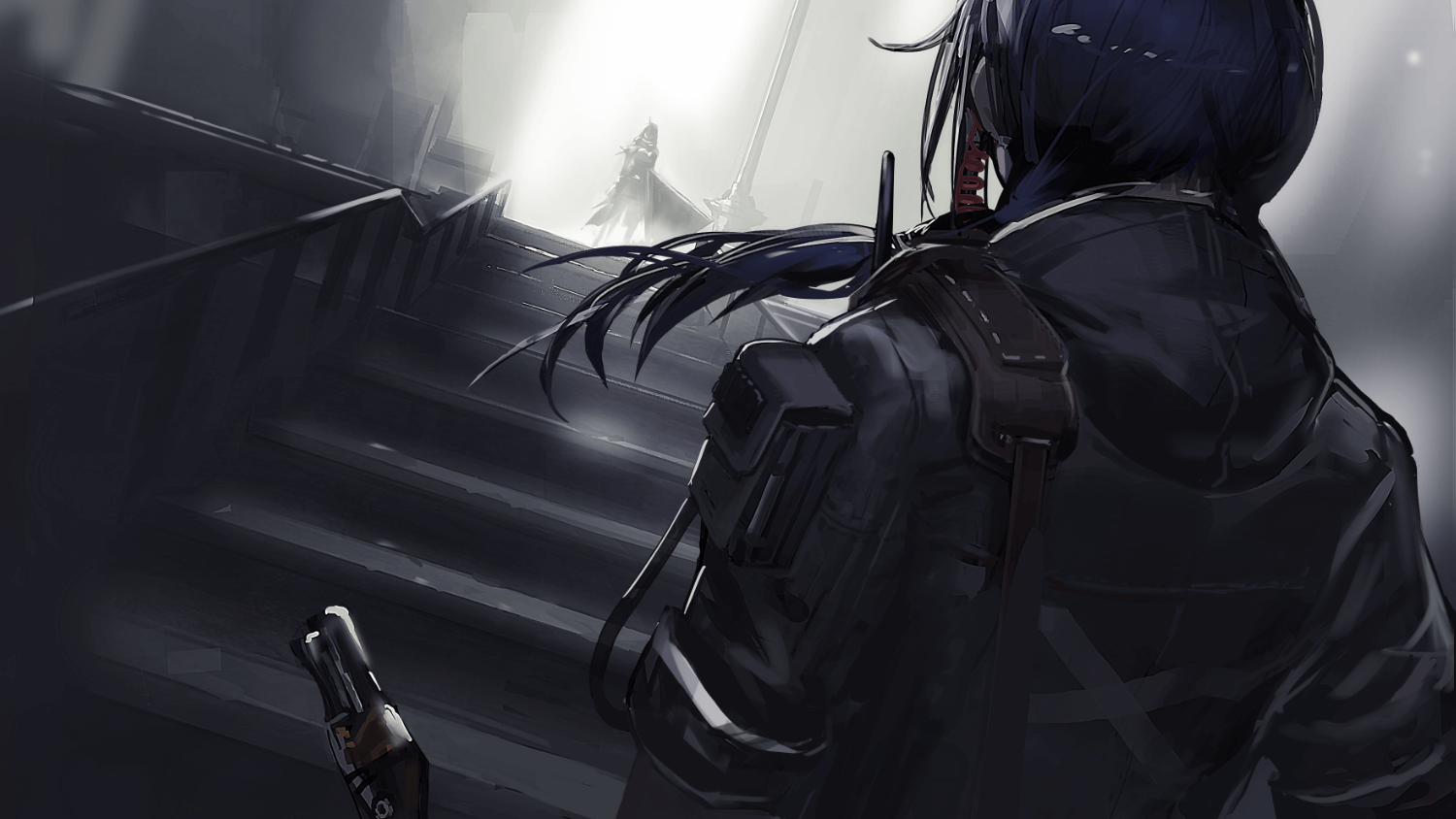
Do you know who’s leading Reunion?
I forgot her name.
Talulah.
Missy didn’t tell you?
Tell me what?
Talulah is my sister.
—Ch'en and Hoshiguma, 7-3 Beginning.
It isn't a surprise how much Ch'en cares about Talulah. They grew up together, after all. She even says "I’m the only one who can stop her" like a line from an old and cheesy fantasy novel. With that being said, I believe this is only part of Ch'en's reason.
I don't think Ch'en ever wanted Talulah to die.
Wei has implied to Fumizuki that he plans to kill Talulah, and Ch'en can likely guess what someone who'd sacrifice almost anything for Lungmen would do in this situation. As for Rhodes Island, Ch'en is probably as clueless as we are on how we will face Talulah in Chapter 8 and beyond. Thus, in order to have things go her way, Ch'en would have to face Talulah herself.
Do you still remember the very beginning of Chapter 5, the conversation between Ch'en and Talulah when they were still young?
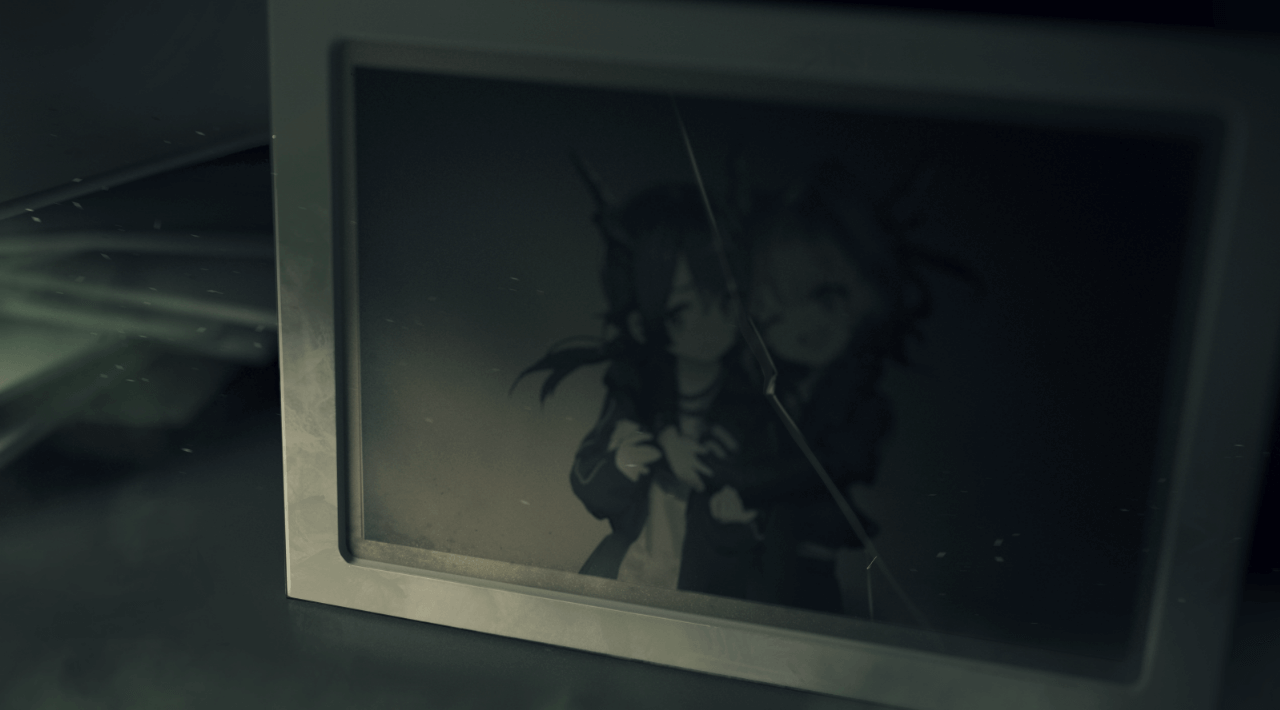
We'll be friends from now on. Those adults won't be able to bully us anymore!
Don't be afraid. From now on, I'll help you no matter what happens.
If something bad happens to me, you'd better help me too! That's what friends are for!
—5-1 Beginning.
Taking this into account, it makes a lot more sense when Ch'en says "I'll certainly help you" in 5-4 when she finds the picture of her and Talulah together, and when she says "Talulah... we made a promise" in 7-19.
Swire described young Talulah as someone who's bossy and had a temper, but she was also someone who always fought for her friends, and never asked for help. I think this part of her rubbed off on Ch'en. It makes for a nice parallel with Talulah trying to protect Ch'en when they were young, and Ch'en trying to save Talulah now.
Closing
Now that we're at the end, you might wonder: is all of this worth it?
For some, putting your life on the line for people you've barely known is absurd. For others, if the reason is just they may have the willpower for it. For most people, however, it's probably not something they can give a straight answer to right away. But for Ch'en, I think I can give a definitive reply on her behalf.
Are the Infected a mistake? Of course not, the mistake is thinking that the Infected are mistakes.

Being able to do things right is worth a life's work. Fixing a mistake is worth betting your life on.
—Ch'en Archive File 4
See you in Chapter 8.

